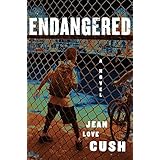To really get this idea, I went to the University of Northern Iowa and their library system for much of the information today. But, I do think if you have done any work with literature, (which in all honesty, every writer should be doing), then you will fully see why I am taking this approach.
NIU notes that multicultural fiction is, " Literature about the sociocultural experiences of underrepresented groups." I think what you should note here is the focus is on the experiences of these groups. What we are essentially seeing with this genre is a glimpse into a world that most of us would simply not know of or understand. The goal is to provide the reader with a bit more of an understanding of what it is to be part of this world.
When you think of authors such as Cisneros, Tan, and Sherman, readers are being immersed into these worlds. For authors, this is a chance to see the GMC's (Goals, Motivations and Conflicts) of this population. We are now able to see the world we live in through the lens of these characters. When done properly, this view can sometimes be very uncomfortable. Part of the reason this is the case, is because, as NIU notes, "This literature includes those who fall outside of the 'mainstream' of categories such as race, ethnicity, religion, gender, sexual orientation, disability, [and] language." We are simply on the outside looking in.
Greyhaus author Jean Love-Cush does just this in her novel, ENDANGERED. Although she is
 focusing in on the issue of racism in the juvenile criminal system, she forces the reader to have to come to grips with his or her own issues of racism.
focusing in on the issue of racism in the juvenile criminal system, she forces the reader to have to come to grips with his or her own issues of racism.As you are thinking about writing multicultural fiction, it is important to consider what you really know about the culture? If you are limited to simply textbook information or source book material, the odds are this is not a topic you will want to write on. You have to either be part of this culture, or have had a chance in the past to be immersed in this culture. A good example of this would be Suzanne Fisher Staples SHABANU. This YA/Middle Grade novel immerses the reader into the world of a young Pakistani girl. Why does this work? Fisher had spent an amazing amount of time in this culture.
The honesty of the story is also what tends to steer many readers away from this novel. For someone outside, there are scenes that are disturbing. Educators often criticize this book for the honesty, unfortunately, it is just for this reason that it should be read.
NIU goes on to note that other factors need to be considered when looking at this genre. Although they are speaking to an audience about purchasing these texts or using the material in the classroom, authors really should think about these elements when they write:
- What is the perspective you are trying to portray?
- Are the characters multidimensional? Recognizable? Not superficial?
- Do the illustrations depict real features? Is the story realistically resolved?
- Is the language authentic?
- Does the story promote positive attitudes toward the understanding of this culture?
This is all about the "take away" for the readers. What do you want to say and what do you want them to leave with?
For authors, it is important to really focus on the realism of the story. Regardless of how disturbing it might be. I will note, however, that if it is disturbing and it does make people uncomfortable, it will often become a tough sale. As readers, we simply do not want to think of the world in this way. But sometimes, as good old Jack Nicholson says, "You want the truth? You can't handle the truth!" But maybe we should
This was a wonderful post. So glad you have written this.
ReplyDelete